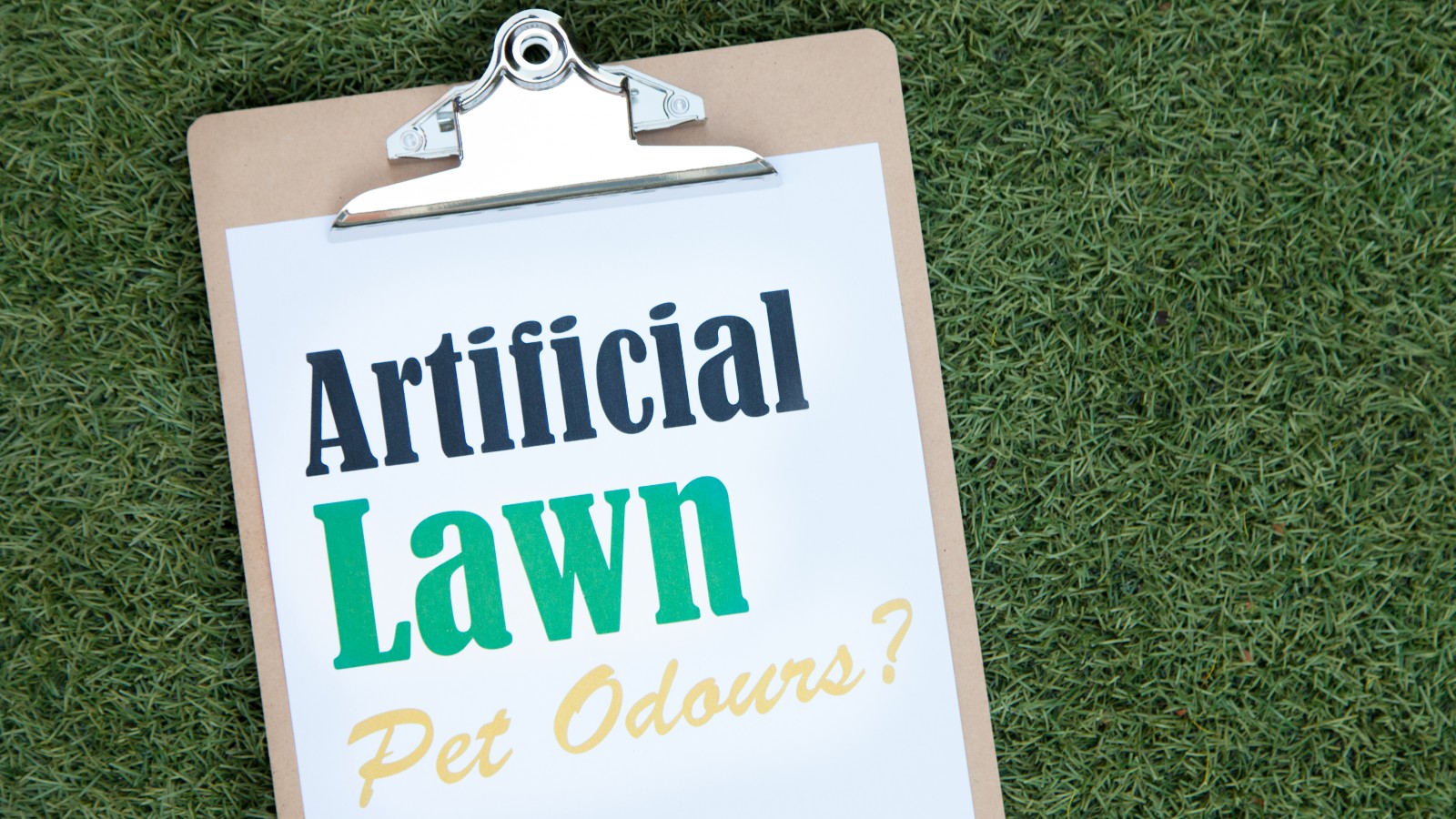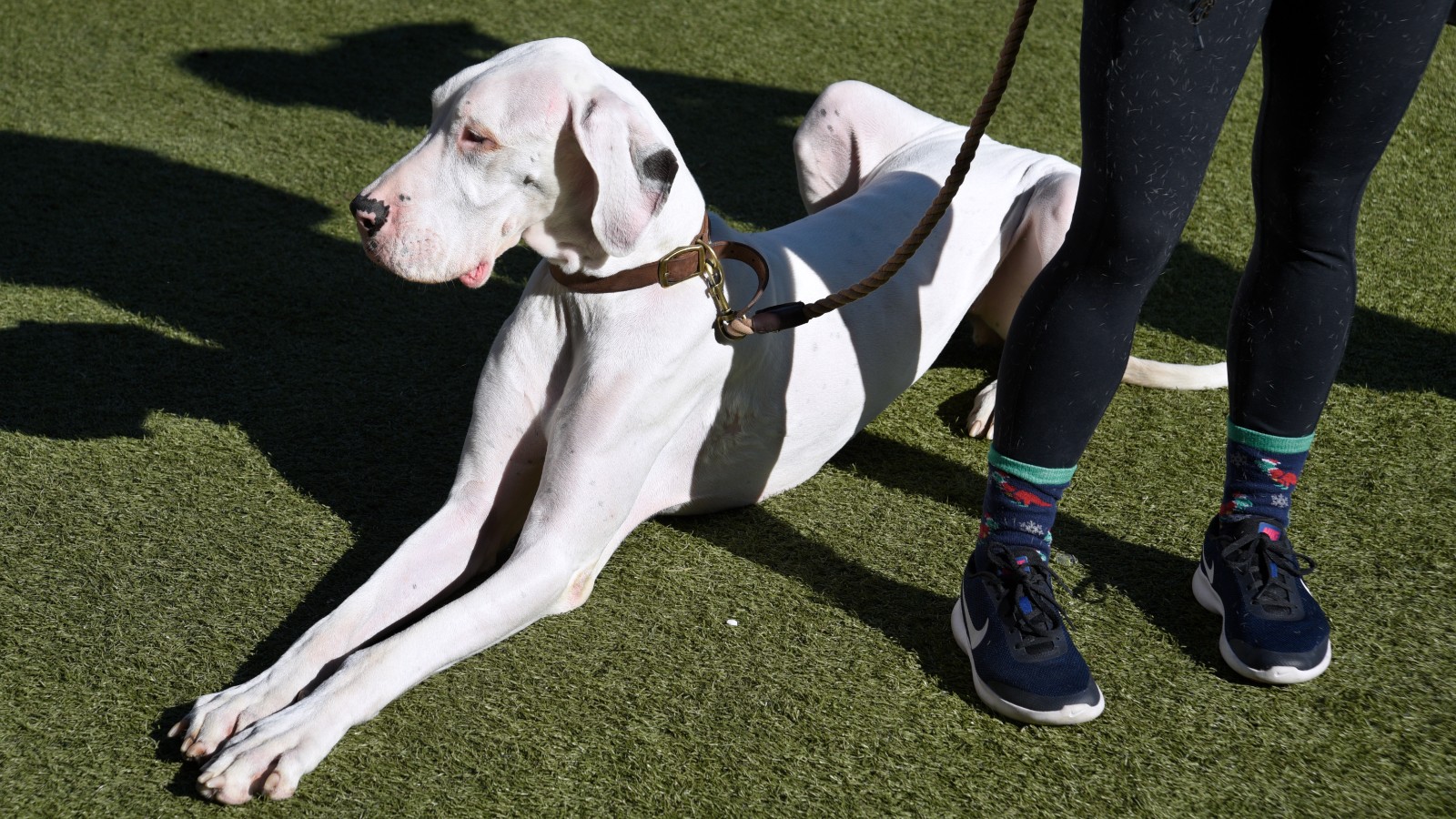How to stop artificial grass smelling and how to clean it
Artificial grass has started smelling in gardens across the UK during the summer heatwave so here's how to give it a quick refresh.


Summer is finally here but as families across the country get out their barbecues and paddling pools to soak up the heatwave many are experiencing their artificial grass smelling.
There was a rise in the number of people having artificial grass laid down because it helped them create a low maintenance garden. But since the hot weather has arrived - with temperatures in most parts of the UK reaching 30C - many pet owners have reported their bad odours coming from their artificial turf.
One artificial grass owner shared on Facebook, "My lovely , very expensive garden, is actually giving me bad anxiety. It smells awful, of dog wee, even though we hose it, disinfect it every day. Tried numerous different ways to clean it. Nothing works. Making the garden unusable. My poor neighbours !!! It's horrible for them too. We have tried everything to get rid of the smell. So now we are going to try to fence off the grass. Even though because of the dogs, it was the main reason for having it."
And if you're one of these people looking to sit out in your garden without the gross stench of lingering dog urine or any other nasty smell then fear not, as the team of experts at WeThrift have provided tips on neutralising and cleaning your fake outdoor grass.
How to stop artificial grass smelling
There are a few simple ways you can stop artificial grass from smelling - aside from making sure any food or drink spillages or pet toilet trips are cleaned up quickly;
- Pet owners are urged to find a part of their garden that they are happy for their dog to use as a toilet. Make sure that the area is not on the artificial grass and instead on soil, stones or other natural materials. Creating a designated area using a small fence to create a perimeter, lay down some cheap dog-safe stones or wood chips. And when your dog uses the area, reward it with a treat.
- Create a bi-weekly cleaning schedule to keep on top of the odours. A weekly wash doesn’t require any products and can be done using a power wash, hose or watering jug. Nick Drewe at WeThrift advises, “Before using any cleaning products or water on your artificial grass, use an outdoor brush or hoover to remove any loose leaves, dirt or rubbish - doing so will help make the process easier and reduce mess.”
- One easy way to remove smells is by mixing a solution of water or vinegar and baking soda. Nick Drewe at WeThrift tells us, “Start by testing the mixture on a small area to make sure it won’t cause any damage to your artificial grass.” Mix the solution in a separate bowl and evenly distribute it across the artificial grass. Leave to soak for a few hours and rinse thoroughly with warm water. It’s important not to let your pets near the grass until it has been rinsed, if ingested the baking soda can be toxic.

How to clean artificial grass
You can clean artificial grass by using a gentle, pet-friendly disinfectant to remove any lingering odours. First dilute your disinfectant with water, decant into a spray bottle and apply it to your fake grass. Allow the product to set for about five minutes before using a hose to rinse away the solution. It's important that when using a disinfectant on your artificial grass, you find a product that is pet-friendly and won’t cause any harm to your pup if ingested and to rinse thoroughly to protect sensitive paws from irritation.
Nick Drewe at WeThrift warned, “A TikTok trend has surfaced of users pouring washing up powder onto their artificial grass, and while this will remove the odour, this could cause serious health problems if your dog ingests it and can cause skin irritation. So avoid using this method, instead find a cleaning product suitable for pets, for example, Zoflora.”
Parenting advice, hot topics, best buys and family finance tips delivered straight to your inbox.
Homeowners are advised to use an enzymatic cleaning product to break down the molecules found in materials like urine, faeces and food that cause smells and stains. While enzyme cleaners can be used for all stains around the home and garden, they’re most commonly found in the home of a pet parent, since they are great at odour-busting. Nick explained, “Enzyme cleaners work amazingly well at cleaning artificial grass and removing the smell of dog urine, this is because rather than simply covering bad smells, they eliminate the odour, unlike most fragrant cleaning products.”
If you're looking for a cost-effective and eco-friendly way to kill the bad odours from artificial grass you can mix your own citrus spray for an eco-friendly alternative. Simply mix two tablespoons of lemon juice and four cups of water into a spray bottle and coast the artificial grass with a light layer will act as a natural deterrent. Once the spray has been applied, let it sit and rinse with warm water to remove any leftover residue.
For more How To guides visit goodto.com

Selina is a Senior Family Writer for GoodtoKnow and has more than 16 years years of experience. She specialises in royal family news, including the latest activities of Prince George, Charlotte, Louis, Archie and Lilibet. She also covers the latest government, health and charity advice for families. Selina graduated from the University of Sheffield in 2006 with a degree in Journalism, and gained her NCTJ and NCE qualifications. During her career, she’s also written for Woman, Woman's Own, Woman&Home, and Woman's Weekly as well as Heat magazine, Bang Showbiz - and the Scunthorpe Telegraph. When she's not covering family news, you can find her exploring new countryside walking routes, catching up with friends over good food, or making memories (including award-winning scarecrows!)